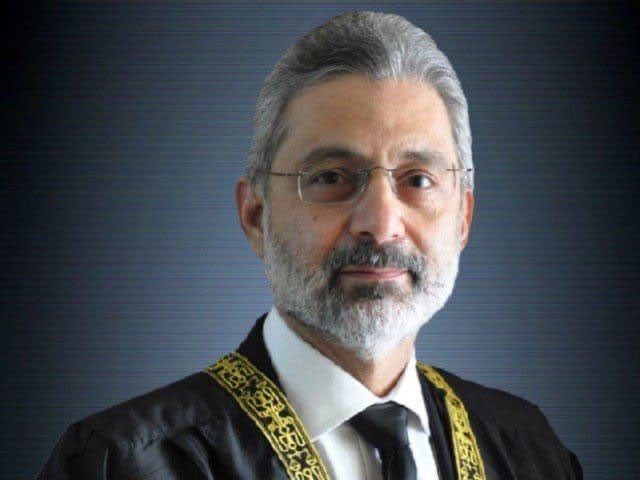Just over a month before the country’s general elections on February 8, a seven-member bench of the Supreme Court will hear the lifetime disqualification petition on Tuesday, January 2, in Islamabad.

Judgment will be handed out by Chief Justice Qazi Faez Isa, with Justices Mansoor Ali Shah, Yahya Afridi, Aminuddin Khan, Jamal Khan Mandokhail, Muhammad Ali Mazhar, and Musarrat Hilali serving as his associates.
It is up to the legislature to decide whether a legislator’s disqualification lasts five years or for life under Article 62 of the Constitution; the supreme court will decide.
Tomorrow at 10:30 am, the case will be heard by the seven-member bigger bench. The case hearing has also been publicised through an advertisement in the local press.
Disqualification conundrum
Article 62(1)(f) was added to the Constitution by the 8th Amendment by military dictator Gen Ziaul Haq. Curiously, since its inclusion in the Constitution during the dictatorship era 38 years ago, no elected administration has been able to repeal Article 62(1)(f).
The duration of Nawaz Sharif’s ineligibility to run for office was a question that came up when a five-member larger bench of the Supreme Court disqualified him in the Panama Papers case for failing to declare unclaimed wages earned as an executive of a Dubai-based company owned by his son, under Article 62(1)(f).
Previous Chief Justice of Pakistan Umar Ata Bandial wrote the decision for a bigger bench that determined the disqualification period under Article 62(1)(f) would be lifelong. Justice Ijazul Ahsan served on the court that decided the life sentence for disqualification, just like the one that decided the Panama Papers case.
Justice (retd) Azmat Saeed Sheikh, who was also a member of the Supreme Court’s bench, stated in an opinion that the highest court could only interpret the Constitution, not change it.
Professionals in the field of law have compared a politician’s disqualification under Article 62(1)(f) to a life sentence in prison.
The disqualification period was increased to five years under Article 62(1)(f) by parliament in the last week of June last year through Section 232 of the Election Act (Amendment) Bill.










































